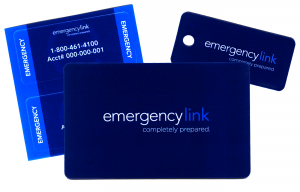Five Tips to Prepare Your Elderly Loved Ones for Emergency Situations
Aging is a tricky thing. One moment you can feel fifteen years younger than you are, and the next an accidental slip in the kitchen or bathroom can throw your whole body out of whack.

We all think we’re ready for accidents and emergencies, but in reality there’s more to being prepared than just keeping a list of contact numbers on the refrigerator. Getting older can be tough on body mobility, but making the effort to get your emergency ducks in a row now will pay off immensely in the long run.
Whether you are a senior living in your own home or in an assisted-living facility, it is always a good idea to have information safely and securely stored in case of an emergency. Everyone, no matter the age, needs to be prepared as much as possible for those “what if” scenarios.
I want to share five easy tips that will help anyone, but seniors in particular, be prepared and feel safer overall in case they face emergency situations:
1. Keep all emergency information in one secure place
In an emergency people are often highly stressed, so the last thing you want to do is hunt down documents like identification, insurance paperwork and medical history. In a recent EmergencyLink study, we found that 1 in 4 Americans over the age of 55 do not have an emergency system of some sort in place. Utilize a service (like EmergencyLink or MedicAlert) so that first responders have immediate access to emergency and medical information.
2. Designate who should be contacted in case of emergency and make sure they’re informed
Make it a priority to fully communicate with a family member or friend about who will be contacted in case of an emergency, and make sure the emergency contact has everything they need in advance, and keep them up to date on any changes (You can also do this through EmergencyLink).
Did You Know?
- Only 18% of those over 55 shared their full medical history with their emergency contact
- 54% shared personal contacts and numbers
- 33% shared their allergies/chronic conditions
3. Scheduling a physician visitation or pharmacist pick-up together
The average number of prescription medications taken by people over 65 is five or six, which can be dangerous and increase the probability of there being harmful drug interactions if not taken correctly. If you’re an emergency contact to a senior, try to plan a doctor visit or pharmacy pick-up together with your loved one to understand all special conditions, names of medications, and dosages. Memory loss is a common symptom to ageing, so you can never be too sure you’re getting the full story.
4. Keep your emergency information with you at all times
If an emergency responder finds you unconscious, time is of the essence. In this kind of worst-case scenario, having a way to access your medical history at all times with an ID card can avoid these situations. We found that 42% of men and women over 55 keep their emergency contact information in their wallet and only 19% have the information in their phones.

Services like Emergency Link provide:
- ID kits (key chain attachable and wallet size cards) that responders can pull from your wallet and identify you with an account number
- Mobile apps that display this same information even if your phone is locked
We believe in protecting yourself and preventing harm from coming your way. But there are always those moments you can’t predict or control, so take precautions now while you have the opportunity to make sure you’re ready for the worst. I invite you to visit www.EmergencyLink.com and sign up for your free account.
* * * * *
Do you have the medical history and current prescription information for your loved ones on hand, just in case? Share your thoughts in the Comments section below.
Related:
Assisted Living Homes
Refill Buddy Makes Refilling Prescriptions Fast and Easy


